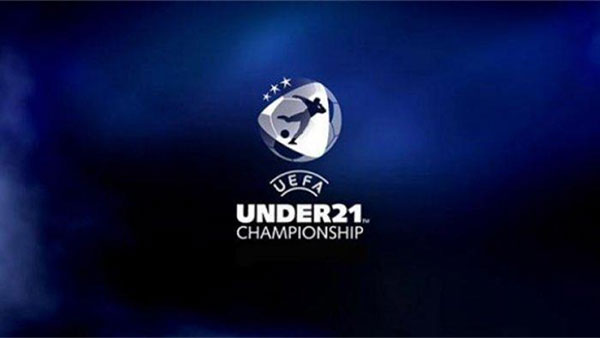♣ UEFA European Under-21 Championship
The UEFA European Under-21 Championship, the UEFA Under-21 Championship or simply the Euro Under-21, is a biennial football competition contested by the European men's under-21 national teams of the UEFA member associations. Since 1992, the competition also serves as the UEFA qualification tournament for the Summer Olympics.
Italy and Spain are the most successful teams in this competition, having won five titles each. England are the current champions, having beaten Spain 1–0 in the 2023 final.
▲ Under-21 Championship
▼ Connection Pages
♣ History
The competition has existed in its current form since 1978. It was preceded by the Under-23 Challenge Cup which ran from 1967 to 1970. From the teams that applied for participation, two teams were selected by lot. These teams in the match between themselves revealed the winner of the main trophy. The winner was obliged to play with those teams that called him to the next meeting. These matches were initially held no more than once every three months, starting from the fourth tournament - in spring and autumn. In the event that several teams challenged the winner, the order of opponents was determined by lot. The cup holder was allowed to play games at home. Only two teams held that trophy: Bulgaria and Yugoslavia. In 1970, the tournament was replaced by the European Youth Championship.
A true Under-23 championship was then formed, starting in 1973. The tournament ran parallel to the existing main UEFA youth tournament that existed after the World War II (today the under-19 competitions). Around 1980, the UEFA reformed its junior squad competitions and reorganized them based on age limit only.
The age limit was reduced to 21 for the 1978 championship and it has remained so since. To be eligible for the campaign ending in 2025, players must be born in 2002 or later. Many may actually be 23 years old by the time of the final tournament; however, when the qualification process began (2023), all players would have been 21 or under.
Under-21 matches were typically played on the day before senior internationals and where possible, the same qualifying groups and fixtures were played out. This has changed since the 2006 edition.
The tournament's record attendance was set during the knockout stage of the 2023 edition, when 44,338 spectators gathered for the match between hosts Georgia and Israel.
♣ Format
Up to and including the 1992 competition, all entrants were divided into eight qualification groups, the eight winners of which formed the quarter-finals lineup. The remaining fixtures were played out on a two-legged, home and away basis to determine the eventual winner.
For the 1994 competition, one of the semi-finalists, France, was chosen as a host for the (single-legged) semi-finals, third-place playoff and final. Similarly, Spain was chosen to host the last four matches in 1996.
For 1998, nine qualification groups were used, as participation had reached 46, nearly double the 24 entrants in 1976. The top seven group winners qualified automatically for the finals, whilst the eighth- and ninth-best qualifiers, Greece and England, played-off for the final spot. The remaining matches, from the quarter-finals onward, were held in Romania, one of the eight qualifiers.
The 2000 competition also had nine groups, but the nine winners and seven runners-up went into a two-legged playoff to decide the eight qualifiers. From those, Slovakia was chosen as host. For the first time, the familiar finals group stage was employed, with the two winners contesting a final, and two runners-up contesting the third-place playoff. The structure in 2002 was identical, except for the introduction of a semi-finals round after the finals group stage. Switzerland hosted the 2002 finals.
In 2004, ten qualification groups were used, with the group winners and six best runners-up going into the playoff. Germany was host that year. For 2006, the top two teams of eight large qualification groups provided the 16 teams for the playoffs, held in November 2005. Portugal hosted the finals.
Then followed the switch to odd years. The change was made because the senior teams of many nations often chose to promote players from their under-21s team as their own qualification campaign intensified. Staggering the tournaments allowed players more time to develop in the under-21 team rather than get promoted too early and end up becoming reserves for the seniors.
The 2007 competition actually began before the 2006 finals, with a qualification round to eliminate eight of the lowest-ranked nations. For the first time, the host (Netherlands) was chosen ahead of the qualification section. As hosts, Netherlands qualified automatically. Coincidentally, the Dutch team had won the 2006 competition – the holders would normally have gone through the qualification stage. The other nations were all drawn into fourteen three-team groups. The 14 group winners were paired in double-leg play-off to decide the seven qualifiers alongside the hosts.
From 2009 to 2015, ten qualification groups were used, with the group winners and four best runners-up going into the two-legged playoffs.
The 2015 finals was to be the last eight teams edition, as UEFA expanded the tournament to twelve teams starting from the 2017 edition.
On 6 February 2019, UEFA's Executive Committee increased the number of participants in the finals to sixteen teams, starting from the 2021 edition.
♣ Results
▤ View all tables →
♣ Records and statistics
Golden Player
▲ Anthony Gordon (Golden Player 2023)
▶ UEFA Men's Euro Under-21 Go page
 Premier League
Premier League La Liga
La Liga Bundesliga
Bundesliga Serie A
Serie A Ligue 1
Ligue 1 Liga Portugal
Liga Portugal Eredivisie
Eredivisie Süper Lig
Süper Lig MLS
MLS Série A
Série A J1 League
J1 League Saudi Pro League
Saudi Pro League WSL
WSL Première Ligue
Première Ligue NWSL
NWSL







 Chapter 2. UEFA > European Under-21 Championship
Chapter 2. UEFA > European Under-21 Championship


 •Wikipedia
•Wikipedia








